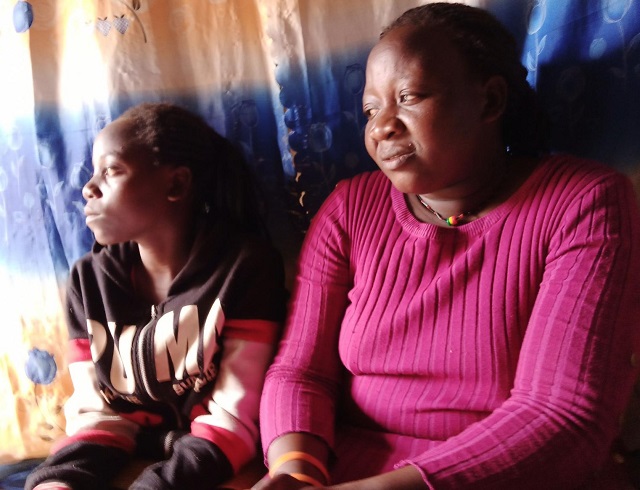
Kampala, Uganda | THE INDEPENDENT | Many children battling sickle cell disease fail to find peace in schools due to stigmatization from teachers who regard them worthless before other children.
Sicklers claim that teachers describe them as feeble children who cannot succeed in life like normal students, on top of accusing them of wasting their parents money.
Brendah Awooli, 17, who stays with her mother in Seeta notes that while at Namwanga primary school Tororo where they used to stay, teachers failed to understand her situation and continued to punish her whenever she skipped days without attending school and at times when she turned up late for classes.
Since her childhood, she suffers inner body pain and a freezing feeling whenever it rains. But teachers could not listen to her challenges which prompted her to quit school in primary four at the age of thirteen.
Jane Apio, Awooli’s mother says she was left without any choice apart from staying with her child at home.
“It was rare for her to finish a school term without difficulties, a month could not pass before falling sick. Whenever she tries working almost her entire body freezes.”
Also George Ochaya, 13, another sickler in Kireka-Seeta decided to opt for a distant school in Bweyogerere than Kireka primary school where teachers could openly regard him as useless.
His father John Ochaya’s efforts to talk the teachers about the boy’s situation instead turned into a quarrel with teachers before he decided to change the school.
However, by the time schools were ordered by the government to go into recess due to the outbreak of Covid-19, daily transport fees of shillings 2,000 was making it impossible for Ochaya attend school on a daily basis.
Sickle cell anaemia is a genetically acquired disease resulting mainly from abnormality in the oxygen-carrying protein haemoglobin found in the red blood cells.
It mainly occurs when a person inherits two abnormal copies of B-globin gene that makes the haemoglobin from each parent. A person with a sickle cell trait is referred to as a carrier and does not develop symptoms.
It usually starts developing in babies at the age of 5-6 months and develops as an attack of pain, swelling of hands, feet and changing shape of other body parts, causes stroke and develops long term body pain as one continues to grow older.
Such attacks depend on temperature changes, stress, body dehydration and high altitude. Sarafina Bukirwa, a clinical officer and the executive director of Sarafina Sickle Cell Society-SASCELL at Mukono says whenever a sickler is subjected to such conditions, it makes them hate their life.
She notes that most of the teachers lack knowledge about sickle cell disease. Teachers subject students to random corporal punishments forgetting that instead the sicklers many times need to be treated like babies.
Bukirwa reveals that their schools have tried carrying out sensitization about the disease but still some of the teachers are not interested in learning about it.
She appeals to the government consider inclusion of sickle cell lessons to the syllabus for people to acquire proper knowledge about the disease like it is done for diseases such as polio, malaria and HIV.
Nicholas Bwiire, the Chairperson of Mukono Private Teacher’s Association-MPTA, says there has been reckless handling of students especially in schools located in rural areas. He further notes they have always appealed to school heads to train teachers in proper handling of students with disabilities and special cases.
******
URN
 The Independent Uganda: You get the Truth we Pay the Price
The Independent Uganda: You get the Truth we Pay the Price





